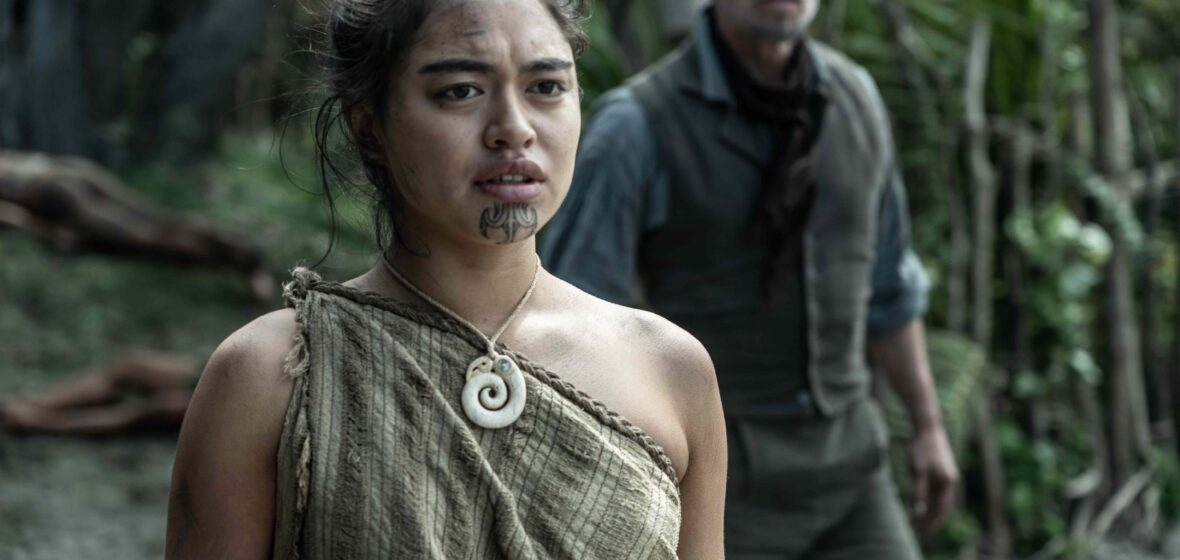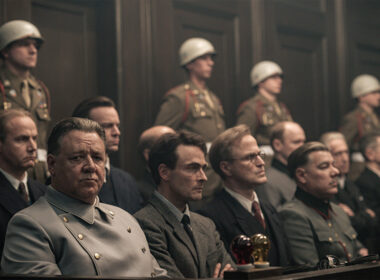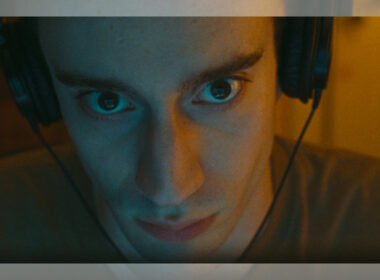Appreciating The Convert is akin to liking epic action films. When it hits, it truly satisfies.
Western filmmakers never completely grasped the concept of white saviour. For those who don’t know, it’s a narrative framing, primarily used in historical fiction, that tells the story of the native population but through the point of view of a reformed white man. It’s the “we understand their pain because now we have one of us on their side”. It’s Dances with Wolves and Avatar, Lawrence of Arabia and Dune. It doesn’t mean a film isn’t worth it. Still, it’s an interesting case study of how Westernised fiction struggles to represent other cultures unless the hero protagonist is also a Westerner. At best, it opens to an epic story about the consequences of our colonial and patriarchal past; at worst, is patronising and offensive to the other cultures it fails to reflect.
I start this review with this explanation because there’s a good conversation to be had about The Convert, Lee Tamahori’s film about a British priest in New Zealand in the 19th century. Thomas Munro (Guy Pearce), battling his violent demons, arrives in New Zealand to take over the diocese of a new settlement. Even before arriving, Munro witnesses a battle between two Māori Iwis. He intervenes to save the life of Rangiami (Tioreore Ngatai-Melbourne), the young and fearless daughter of Maianui (Antonio Te Maioha). Munro takes the girl to the settlement and tries to introduce her to the ways of the West with her father’s blessing. Still, the reaction and inhospitably of the colonisers delude him. After a tragic event, he moves to the Maianui’s Iwi, accompanied by another British woman, Charlotte (Jacqueline McKenzie), to help the fight against the expansionist and ruthless army of Akatarewa (Lawrence Makoare).
Munro arrives in the new land believing he can preach an idea of co-existence and peace but is faced with two realities that elude him – the colonisers are driven by cultural supremacy he hadn’t seen before. The Māoris is a complex society with intricate geopolitical problems an idealist priest cannot solve. And that’s the wonder of the script, co-written by Tamahori with Michael Bennett and Shane Danielsen – it tries to reverse the role of the white saviour into a completely irrelevant one. Munro hopes to spread his idea of harmony but is humbled and reduced to mere observance of complexity that he cannot understand. Even in the end, when he breaks his vows of anti-aggression, it is to save another British woman.
The Convert feels like Tamahori’s expected career progression. He blew up in the scene with arguably the most important Kiwi film of all time, Once Were Warriors, which opened the doors to a long, primarily forgettable career in Hollywood. The talented filmmaker had been reduced to a competent director for hire, never living up to the potential he had shown in his homeland. Unbridled by the industry’s expectations, it is a joy to see Tamahori putting Māori culture front and centre – a complete reverence for its customs, its language, and the intricate details of its tradition. It never feels exploitative or exotic, and as the film progresses, it is evident the Munro point-of-view is the least exciting aspect for Tamahori. He revels in the rich story of the two Iwis and almost feels like he’s being dragged by the white priest, kicking and screaming.
The idea of tearing apart the concept of the white saviour is compelling, similar to what Scorsese did in Silence. But near the end, it’s evident Tamahori and his writers bit off more than they could chew. The threat of colonial power is pushed to the background so the film can focus on the fun part: two Māori armies fighting. Even the end feels rushed and strangely at odds with the message. After an emotional conclusion, Tamahori adds a strangely happy epilogue, considering what we know about the fate of Māori culture.
That said, when The Convert hits, it satisfies. I have a feeling Tamahori made exactly the film he wanted. He’s not trying to make prestige cinema; he’s trying to entertain and give the Māori its moment of cool action. This is elevated by the actors’ work, especially Ngatai-Melbourne, Te Maioha and Makoare. They fill the screen with magnetic intensity as if they are told this is the last chance their culture will be on the big screen, and they need to make it count.
Appreciating The Convert is akin to liking epic action films. If anything, Tamahori could’ve given the film a B-movie edge, making it bloodier and brutal. It sometimes feels stuck between two ideas at odds: a serious period drama and a “no holds barred” adrenaline-packed romp. It does one incredibly well and feels less interested in the other.
Verdict: 3.5 out of 5
For everyone who wondered what happened to the director of Once Were Warriors, disregard the last three decades and jump directly into this—also a career-defining role for Tioreore Ngatai-Melbourne, who needs to channel more of that raw intensity.




